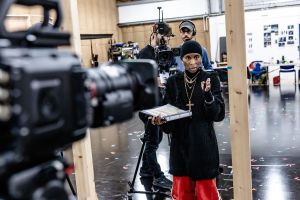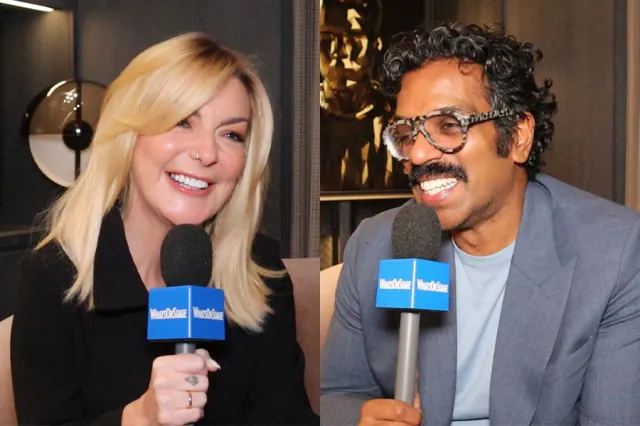Flop Shows – Can you spot them a mile off?
Reading Craig Hepworth’s blog on the possible re-staging of Carrie- the Musical made me think about whether it is ever possible to tell in advance if a show is going to be good.
Objectively Carrie seemed doomed from the start. Stephen King’s book drew on primal fears – the heightened emotions of adolescence where peer pressure and subtle bullying are rife and the entirely rational male fear of female ladyparts. How on earth anyone could imagine that would be a suitable subject for a toe-tapping musical beggar’s belief? And, it seems, such misgivings turned out to be correct.
But it’s not always so easy to spot a stinker. Sometimes shows that look like being a sure hit turn out to be terrible and visa versa and it’s hard to work out why. Years ago John Lahr did a stage adaptation of Richard Condon’s The Manchurian Candidate that should have been a best seller. Condon’s book was a superb blend of satire and thriller and had already been turned into a film so good that even Frank Sinatra‘s acting couldn’t detract from its quality. So there was obvious potential in a theatre adaptation.
Problems with the stage show were apparent even before the curtain went up. The audience was kept waiting outside the Manchester Opera House for ages until a shamefaced admission was made that the technical innovations that were a key feature just weren’t working. This wouldn’t have been so bad- theatre audiences after all love a good challenge- but the adaptation missed the point of the original, which, being set during Korean War, enabled Condon to satirise America at the height of the cold-war paranoia. The play was set in the a near future so that the fascinating idea of a war hero brainwashed into being an assassin was out of date – in such an environment enemy agents favour disruption by bombs rather than subtle subversion. The whole show was mis-judged reaching its nadir with poor Siân Phillips simulating mainlining heroin.
What made the whole thing so excruciating for me was that, as the book and film were favourites, I’d talked my friends into going to see the bloody thing – something about which they reminded me from then on. Dr Who – the Ultimate Adventure on the other hand was obviously going to be a disaster. Jon Pertwee was not in good health and read his lines from strategically placed cue cards. Although the show boasted innovations (for the time) of a projection screen the producers had skimped on other areas. The Dalek entered the stage by the basic method of being shoved from the wings by a stagehand. One of the Doctor’s companions would then grapple with the thingy and spin it around and off into the other wing. I’m told that if you sat close enough you could hear the technician inside the Dalek saying “Worra way to make a living” but that’s probably apocryphal.
But somehow the show managed to capture the strange blend of shabby end of the pier effects and decent storytelling and acting that made the original TV series so endearing. My friends and I had a great time and ended up in the pub with ‘ Back in the USSR’ on heavy rotation that somehow made for the perfect ending.
The great William Goldman said that when assessing whether movies will be any good ‘ No One Knows Anything’ and the same precept applies to the stage. From the above it’s clear that I’ve no idea how to determine in advance if a show is going to be a success or otherwise but there are some things audiences can do to minimise wasting good money on duff shows.
Regional audiences suffer from low expectations. We have become inured to touring productions with shaky sets led by actors cast not for their skills but their fame in other areas. So it’s hardly surprising when we get let down. The obvious safeguard is to be more discerning – limit the choice of shows to those from companies like the National or the RSC, that you can trust to at least provide technical quality, or Propeller that offer such stimulating versions of the classics that the technical aspects are less relevant.
This approach can be taken further – favour local rather than visiting productions. Home grown theatres like the Royal Exchange, The Octagon, Contact, The Everyman and so on are permanent fixtures with a vested interest in satisfying their audience so that they return to future productions. The greater care taken in casting and staging is reflected in the quality of the shows. There are usually reduced price previews so your money could go even further. Besides, as a matter of principle, we ought to support the local companies.
Fringe venues like Studio Salford and the Taurus Bar can’t hope to offer technical quality but their limited resources are skilfully allocated so that for a comparatively low ticket price (actually cheaper than the cinema these days) there is the chance to see decent casts performing some startlingly good plays.
But the key thing to remember when planning the shows to see in the future is to be careful which ones you recommend to friends. They never let you forget the dodgy ones.
– Dave Cunningham












